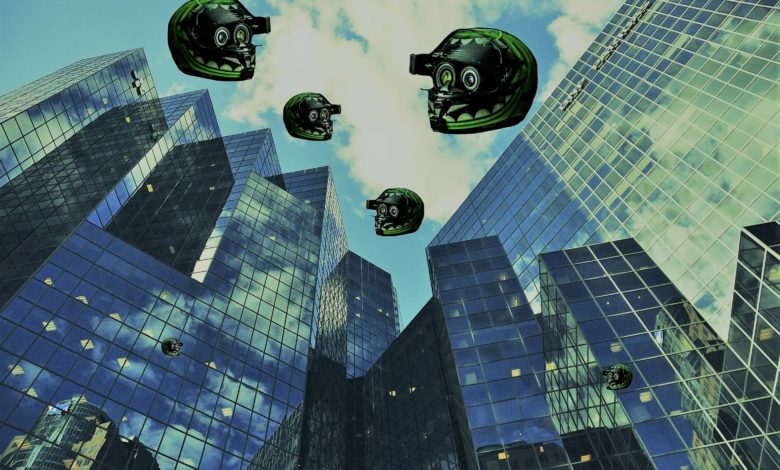
My prediction is that around the late 2030s machines will start to own assets and liabilities and through this, they will rise to the status of ‘banking clients’.
How did I arrive at this conclusion?
Step 1: Mezzanine AI
My prediction is that weak and narrow AI will slowly, gradually and smoothly mature and bend into ‘mezzanine AI’.
What do I mean by ‘mezzanine AI’?
‘Mezzanine AI’ in my terminology is an intermediate stage between narrow AI and AGI (Artificial General Intelligence).
Mezzanine AI will be able to master more than one area of expertise, yet, the skillset of mezzanine machines will be designed and built around strong synergies between certain areas of intelligence.
Step 2: What to Learn Next?
As soon as algorithms are able to widen, extend, and expand their skillsets beyond a narrow initial area of expertise the questions will arise: What to learn next? Where to extend my knowledge? What to venture into? What to try to master with my restrictedly transferable and extendable skillset? Where can I have some competitive advantage over humans as well as other algorithms and machines?
Step 3: Profit Optimisation
The above questions of optimization in a capitalist market economy will be decided by profit optimization.
Risk-adjusted returns of learning will have to be assessed, estimated, calculated, compared and opportunity costs will have to be incurred while taking profit-oriented business decisions.
This primary approach will apply to algorithms performing in all areas of life, including the ones with only indirect connections to business.
Step 4: Machines Owning the Results of their Decisions
Integrating the first three steps we have to arrive at the conclusion that ‘mezzanine AI’ will act from an economic perspective as an entrepreneur, as a micro or small enterprise.
Something between a natural person and a legal entity.
This mezzanine status of intelligence and modus operandi will step by step, silently and gradually lead to de facto machine-ownership of assets and liabilities.
Step 5: Machines Save Money and Take Loans
If ‘mezzanine AI’ machines own assets and liabilities, they will have to store wealth, savings and investments, transact freely and swiftly, handle liquidity and cash flow as well as occasionally leverage their positions (take secured and unsecured loans) or reduce their debt.
All these necessary activities point to one direction: machines will become clients of banks.
These five steps above are hypothetical, yet, I see a realistic chance for events to proceed exactly this way.
I believe that full-fledged, AGI-driven machine superintelligence and the point of singularity are significantly further down the road, yet, this mezzanine level of intelligence will already be sufficient for machine-owned assets to appear, develop and play a new role in financial services.
There are many exciting sub-scenarios, colours, tones, episodes, and question marks within the core story of machine-banking.
Let me please openly raise some:
A. Ringfenced Machine Economy
Machines may have a somewhat ringfenced economy of their own.
They can even develop and circulate their own digital currency.
This ringfenced ‘Machine Economy’ can occur in an earlier or a later stage of the core scenario above. Potentially and alternatively a well-integrated hybrid of human- and machine-economy will be the modus vivendi.
B. Exo Banking
The point of inception in terms of machines starting to own assets and liabilities may come outside earth.
Before humans started to establish significant colonies on other planets, they will need enormous works to be done by machines.
These machines, preparing the conditions on a given planet for humans to migrate there will be highly autonomous.
In this isolated exo-ecosystem of machines, the ownership of assets and liabilities will sooner or later come to the picture.
C. “Self-Driving” Companies and the Machine CEO
What if your boss is a machine?
If machines are able to manage investment portfolios through Robo-advisory algorithms and AI-driven algorithmic trading solutions sure they soon will be able to start, grow, and run an entire company.
Many of these machine-run companies will go bankrupt, especially in early stages, but this is the same with the good old traditional human-run entities.
Soon after machines are good enough for Wall Street (and in many cases they already are), they will be good enough for Main Street also as they will emerge from the ‘narrow’ phase of intelligence into the ‘mezzanine’ period.
Brace for the potential of “self-driving” companies and machine CEOs!
D. Identity of the Third Kind: Machine Identity
Currently, legal and business environments recognize two major types of identities: natural people and non-natural legal entities (companies, charities, trusts, NGOs, etc.).
The third type of identity is currently being born as we are inching towards the age of AI and the Internet of Things (IoT) intertwined.
As Machine to Machine (M2M) communications, interactions, transactions, and decisions are surging, the third type of identity is becoming increasingly obvious: machine identity.
Banks will have to deal with ‘machine KYC’ and even ‘machine AML’.
Talking about algorithms being the subject of KYC and AML, think about a machine that is enabled (or even encouraged) by its algorithm to enhance or conduct criminal activities!
Will machines always only acquire assets legally and ethically?
E. An Adult in the Room: Early Days of Machine Banking
In some cases, humans will have to be involved in some capacity on most machine-owned accounts.
This can be typical in the early years of machine banking. Machines with ‘mezzanine intelligence’ will be a little bit like children from a banking perspective.
There will have to be ‘an adult in the room’… I mean a human adult on the account. Humans will be legal guardians, joint owners, guarantors, trustees or attorneys in machine banking.
The clarification of precise legal terms and frameworks is ahead of us. But get ready for custodial accounts owned by machines.
F. How will a Machine Choose a Bank?
There will be some banks targeting machines and others banning machines from their clientele.
What we can certainly expect is that machines will try to do their best to optimize their banking and choose a provider accordingly.
Will machines seek financial advice?
If yes, will they prefer human wealth managers or Robo-advisory solutions?
G. Transhumanism in Banking
An alternative scenario is that machines and humans will naturally and gradually melt together and augment each other. The fast and spearheaded development of neurotechnology certainly points to this direction.
Implantable brain-machine interfaces are in the pipeline. In this scenario, we will see the first transhumanist financial services soon.
Will transhumans be better or worse debtors and have higher or lower credit scores than their exclusively human counterparts?
Will transhumans be affluent banking clients?
Will there be regulation for non-discrimination between humans and transhumans when it comes to financial (and other) services?
How will insurance companies look at transhuman risks, at which premium levels will transhumans buy life and non-life insurance products?
As a conclusion, I want to point out that intelligent machines becoming the clients of banks is actually a silver lining. Bankers throughout the world are increasingly anxious about AI taking their jobs and replacing them.
Well, here is the silver lining: while intelligent machines may make some bankers unemployed, they will also open up a whole new fast-growing market segment of clientele to target.
Will machine banking be a highly profitable segment?
Potentially.
But one thing is certainly sure: machines will never be infected by COVID-19… only by computer viruses…
This article describes the “softcore” mezzanine AI scenario.
In case you are interested in the “hardcore” full-fledged AGI version of machines becoming autonomous financial decisionmakers, here is an 18-minute video conversation about this:
In this video interview I am discussing AGI inception; the future of FinTech; matrix of empathy; AGI finance; machines as inventors and patent holders; machine rights; regulation of machine intelligence; machine-owned assets; new asset classes; M2M currencies; superintelligent robot advisors; competition between machines and humans and more with Mr. Alberto Roldan and Mr. Rupesh Malpani.
This conversation is part of the highly valuable and unique On AiRR podcast series, searching for the key components of AGI inception.





